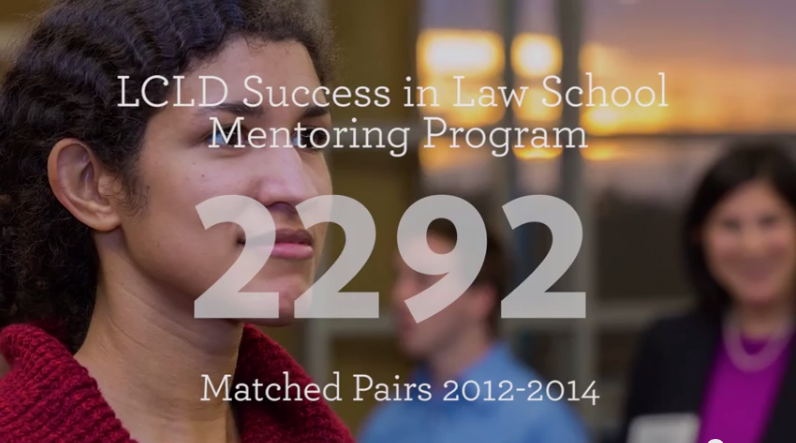The National Law Journal (NLJ) reported recently that a survey conducted by the American Bar Foundation (ABF) shows significant progress in LCLD’s efforts to create opportunities for attorneys from diverse backgrounds.
As the National Law Journal story went to press, LCLD Members attending the Fifth Annual Meeting in Phoenix heard ABF Director Dr. Robert Nelson (above) deliver highlights of the 2014 survey, which polled LCLD Mentors, LCLD Mentees, 1L LCLD Scholars, and LCLD Fellows.
As reported by NLJ, Nelson's survey cites three areas that are “showing promise” in advancing diverse attorneys. They include “relatively low attrition rates at their [participants’] law firms, deeper professional networks, and high employment rates among diverse law students” [who participate in LCLD programs].

One subject probed in the ABF survey was the career effect of “social isolation” in law firms on women and minorities, especially African-American women, a phenomenon that Nelson has documented in a landmark study, “After the JD: The First Twelve Years.” The NLJ article also quoted LCLD Chair Brad Smith, who was interviewed by phone from the LCLD meeting: “We always knew we couldn’t change the legal profession in a year, but the early results are positive. We're starting to move the needle.”
“Social isolation is associated with higher rates of attrition from law firms for diverse attorneys,” Nelson said. “LCLD Fellows, by contrast, are overwhelmingly (84%) still employed with the firm or corporation that nominated them to become a Fellow, and 78% of those who left did so for a better job opportunity rather than dissatisfaction with their current job.”
Since the inception of the Fellows program in 2011, 603 mid-level attorneys have participated, and each program year builds a new community while also adding numbers to the Fellows alumni network. One third of the surveyed Fellows have referred work to other Fellows, showing the power of Fellows’ networking, said Nelson.
“The fact that they are referring is an indicator that a level of trust is being built among the members of this unique community,” Nelson said. “Fellows are not isolated.”
Other findings related to Fellows that Nelson found important: “Last year 22% of Fellows were promoted in their organizations, 35% were elected or invited to leadership positions in their organizations, and 31% were elected or invited to leadership positions in their community.”
Fellows also expressed satisfaction with their experience and the skills they gained, recognizing increased market knowledge, mentoring opportunities, and greater exposure to top management as some of the benefits.
But Fellows are not the only LCLD participants performing beyond the norm. The 536 first-year law students who have participated in LCLD’s 1L Scholars program have also had great success.
“While the numbers measured for the 2011 class of 1Ls are small, the employment results look impressive,” Nelson noted. “One hundred percent of 1L LCLD Scholars who had graduated from law school received full-time jobs requiring bar passage. According to the National Association for Law Placement (NALP), for the graduating law class of 2013, only 64% of graduates achieved full time jobs requiring bar passage.”
The ABF also found that 100% of LCLD participants who landed 1L jobs also found 2L jobs.
At the Annual Meeting, LCLD Chair Smith noted that these encouraging results are tied to each Member's “personal commitment,” which is perhaps most apparent in two figures — the 95 percent LCLD membership renewal and program participation rate, and the number of Member volunteers participating in LCLD's Success in Law School Mentoring program, which has matched 2,292 pairs of attorneys and law students since launching in 2012.


